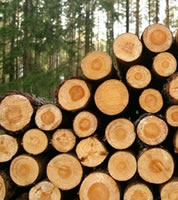 Journal Your Research Experience
Journal Your Research Experience
Journaling a research experience is an effective way for the student information scientist to record and reflect on the inquiry process. The scientist might ask him or herself the following questions:
As you encounter each new piece of information, describe how it helps or hinders your investigation. Write about how new information either confirms or counters what you have believed or have hypothesized.
- What information are you willing to accept that actually changes your mind, and why?
- What information do you reject, and why?
- In summary, along with your final report, do you believe you gave a fair and open mind to consider new information you encountered along the way?
- How might you involve others in judging your ability to fairly accept or reject new information?
Becoming proficient at the use of journals in the research experience is associated with the following Information Literacy Standards (AASL, 1998):
- The information literate student evaluates information critically and competently.
- The information literate student uses information accurately and creatively.
- The information literate student is an independent learner and pursues information related to personal interests.
- The information literate student is an independent learner and strives for excellence in information seeking and knowledge generation.
- The information literate student contributes positively to the learning community and to society and recognizes the importance of information to a democratic society.
The following example demonstrate how a student matures as he or she gains experience and expertise.
Lumber Industry
 As student information scientists gain experiences, they are more able to identify multiple perspectives, analyze competing ideas, and consider alternative conclusions. Less sophisticated information scientists may need scaffolding to support their journaling experiences such as guiding questions or concept maps.
As student information scientists gain experiences, they are more able to identify multiple perspectives, analyze competing ideas, and consider alternative conclusions. Less sophisticated information scientists may need scaffolding to support their journaling experiences such as guiding questions or concept maps.
For example, young children investigating the lumber industry may only see two sides to the topic: those who want to cut down trees and those who don’t want trees cut down. They may need to develop a chart visualizing perspectives beyond these two discrete views to assist them in organizing their thinking.
As students become skilled in identifying multiple perspectives on their own, they are able to journal about the many dimensions of the issues without support.
Explore Cody's investigation for more detail.
